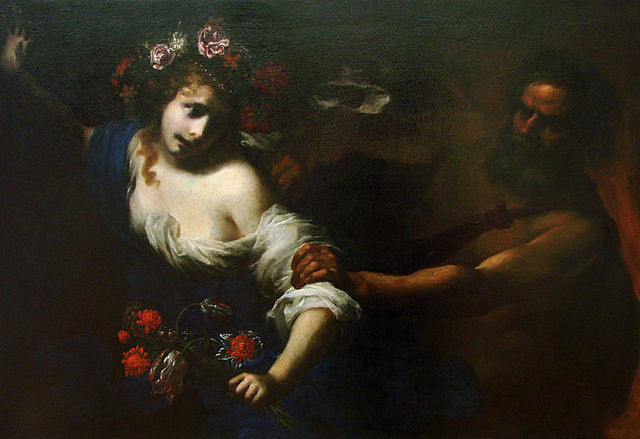As Autumn’s crispness begins to embrace us all, I cannot shake the feeling that I am preparing for a meeting with a lover—someone out of sight, mysterious, and not of this realm.
Such is my fear, my anticipation, my most ardent hope.
I gather what lingers from the vibrance of summer close to me. I clutch the lingering flowers not yet faded from frost. I dine on the last tomatoes not yet devoid of their sweetness.
I wait.
So much of our lives in spent in fevered pursuit of perpetual summer. In our thoughts of paradise, winterless beaches parade their unchangeless bliss. In our thoughts of love, we cling to the idea of a partner with their darkness strictly controlled, locked away in a distant keep. In our thoughts of food, may endless bounty and perpetual feasting be forevermore. In our thoughts of ourselves, we’d prefer the vulnerable beating heart of our personal darkness be hidden away.
In our thoughts of death…well, wouldn’t we just rather not think of it at all?
Often, our unchanging responsibilities and routines of modern life demand that we ignore it.
I would ask, gently and with the knowledge that we are all in it together to protect us, that we do think of it.
Stories are one of most gentle ways to awaken understanding.
I am reminded of two legends that speak of the knowledge born from darkness, of descent into winter, and of the light and growth that may follow if such darkness is let in with an open heart.
I am reminded of Persephone, the bride of Hades and goddess of vegetation, who is stolen from a meadow into the depths of the underworld. There she learns of and consumes the mysteries of darkness, in this act ensuring the continuation of this necessary cycle of death and rebirth.
Like Persephone, may I wed darkness—my own, and that which exists outside of myself, so that, on a now distant day, spring may be born from my understanding.
I am reminded also of the Skeleton Woman from Clarissa Pinkola Estes’ beautiful collection of myths, Women Who Run with Wolves (the complete legend can be found here).
The skeleton woman is dragged up from her home on the bottom of the sea by a hungry fisherman. Expecting a nourishing dinner, he is alarmed by his gruesome catch. The skeleton woman is awakened by his fear and sees someone who may be able to help her. She extends her arms in need. Thinking he is being chased, the fisherman flees to shore. When he is out of his boat, he is chilled to hear the rattling of bones, still behind him. She is stuck the fishing line he carries. All the way to his home, she follows behind. He is full of relief when he arrives home and races in his door, finally safe.
Imagine his terror, when—lighting his whale-oil lamp, he sees her still there.
Now, though, in the firelight, he suddenly finds her less frightening. The flickering light softens her skeletal features, and he begins to pity her. Gently, he begins to untangle her bones from the fishing line. She feels enormous gratitude after lonely years on the bottom of the sea, but stays silent. She does not wish to frighten him any more. He covers her with one of his fur blankets, and falls into a deep sleep.
During that night, he sheds a tear. The skeleton woman is so thirsty for love that she goes over to him, and drinks it. This fulfillment of need fills her with such hope and love that she begins to sing. She sings for a new body to be born of this love.
Her wish is granted. Flesh begins to fill out capable hands, thick thighs, and a strongly beating heart. Whole again, she sings the fisherman’s clothes off, and climbs in next to him, skin against skin.
Like the skeleton woman, may I be unafraid to pursue my most ardent desires. May I open my heart to that within me which needs to die to serve my own purposes, and those which the universal order may have in mind. May I open myself to that which needs to die to truly connect to those whom I love most ardently.
May I bite deeply into that bittersweet fruit, resting in Hades’ outstretched hand.
I ask, and may we all ask.
Dadme la muerte que me falta.
(Give me the death that I need)
Author: Maggie Jo Parsons
Image: The Rape of Persephone by Simone Pignoni Wiki Commons (public domain)
Editor: Renée Picard







Read 0 comments and reply